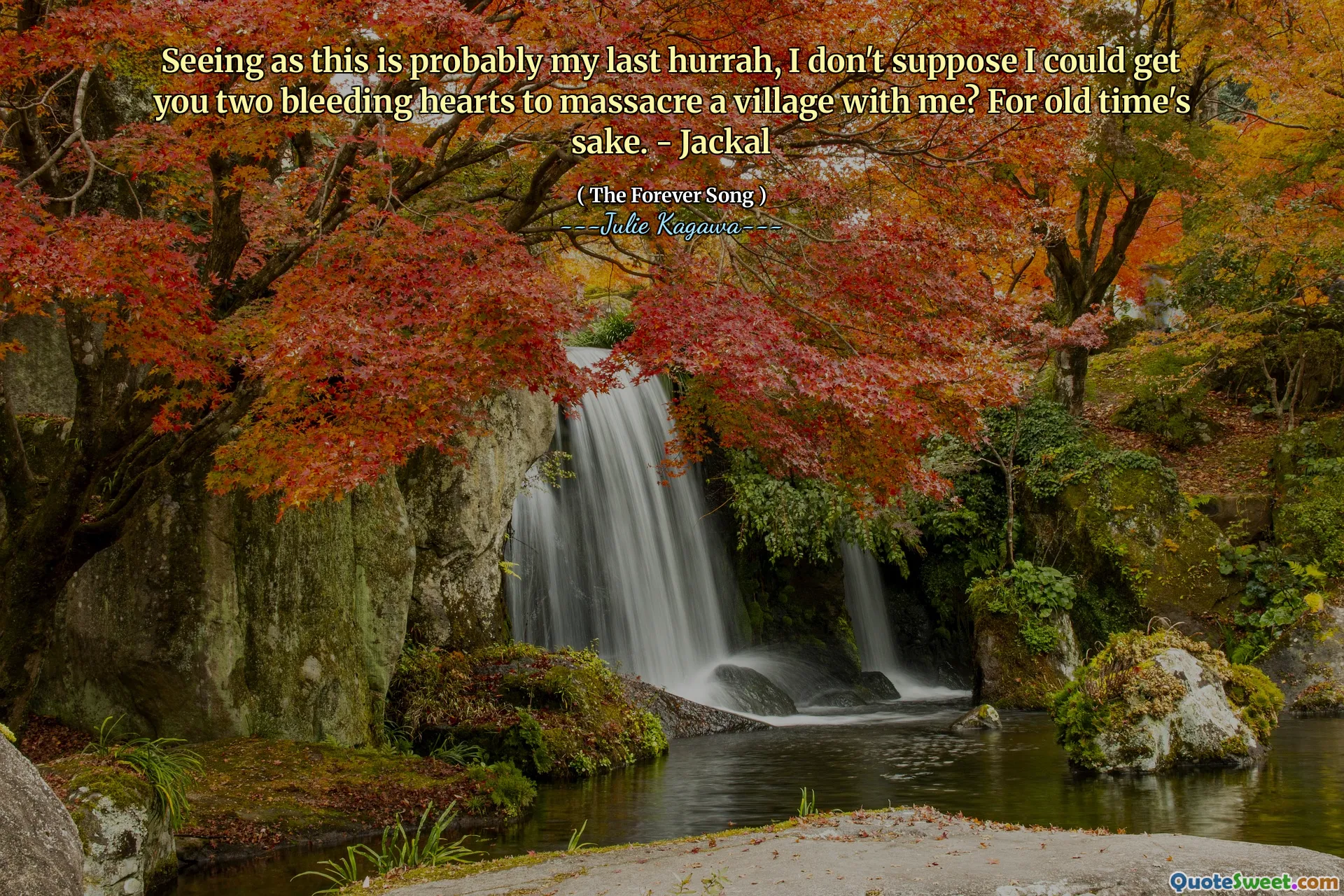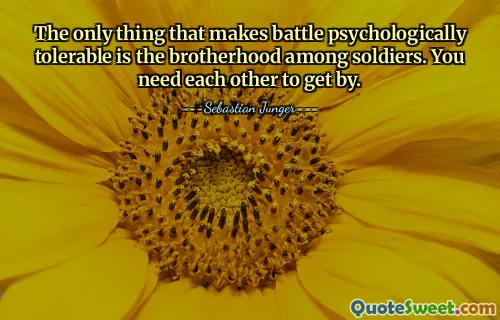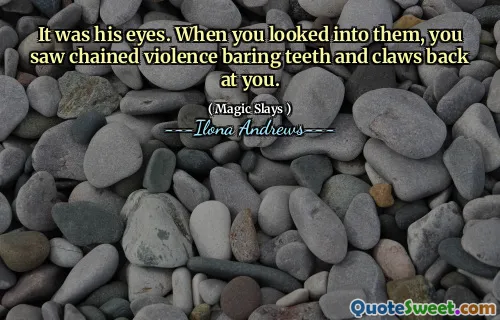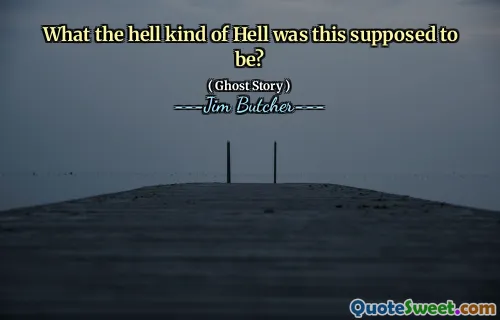
Seeing as this is probably my last hurrah, I don't suppose I could get you two bleeding hearts to massacre a village with me? For old time's sake. - Jackal
This quote from Jackal in The Forever Song by Julie Kagawa captures a moment brimming with a blend of dark humor, desperation, and nostalgia. The phrase "last hurrah" implies a final act of significance, perhaps tinged with fatalism or impending doom. It portrays the speaker as someone who acknowledges that their current action might be their defining or perhaps concluding event, adding a tragic undertone to the otherwise violent and brutal request.
The term "bleeding hearts" is often used to describe empathetic or compassionate individuals — here, ironically juxtaposed with the call to "massacre a village," highlighting the inherent conflict between morality and necessity or the absurdity of trying to align sentiments with violence. There’s an emotional complexity in this invitation, as it reflects not only camaraderie but also an underlying tension between ideals and harsh realities.
Invoking "for old time's sake" adds a layer of nostalgia and shared history, suggesting that despite the grim nature of the act, there’s a bond between the characters that makes this dark endeavor almost a ritual or a final shared memory. It paints a rich picture of characters who, while morally complicated, are deeply interwoven emotionally, grappling with fate, loyalty, and the darker sides of human (or supernatural) existence.
Overall, the quote is a poignant snapshot of thematic elements like fatalism, companionship amidst chaos, and the interplay of morality and survival, emblematic of Julie Kagawa’s story-telling style which often navigates the shadowy gray areas of character motivations and relationships.





